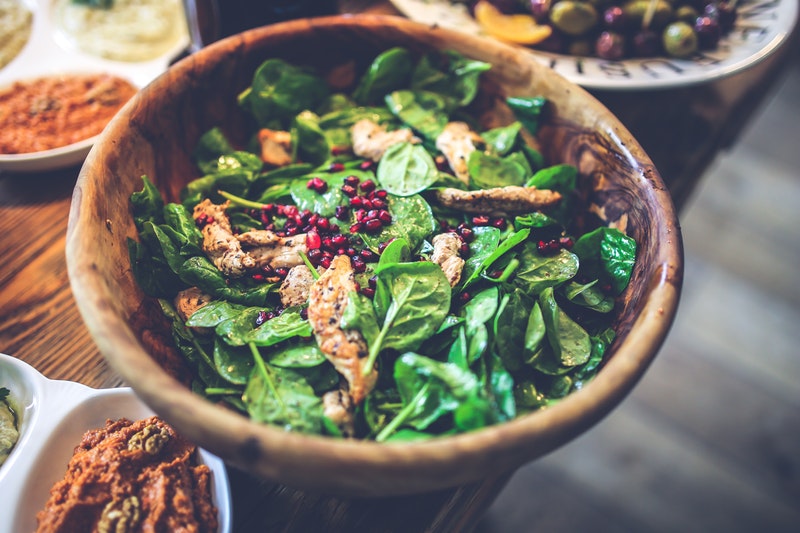While the Easter holidays are ending and the new season is setting in, more and more people complain about different states that go by the common name Spring Fatigue or Springtime Lethargy. If you have recently been sleepy, tired, have frequent headaches, or you simply get exhausted faster than usual, the following lines may be helpful.
Spring is the most beautiful season of the year, full of rejuvenation and growth after a long and apathetic winter. The early sunrise, the warmer weather and the blossoming trees awaken our body for a new start. This beautiful natural process of adapting to the new mode, however, often overloads our physics and psyche. Scientists have long been exploring how springtime fatigue turns our circadian rhythms upside down, which makes our bodies hard to handle. So, below you can find suggestions on how to manage it.

1. A look at your plate
Balanced nutrition could help flatten the hormone levels and suppress fatigue and stress. Since during the winter we've depleted our bodyly reserves of all the key vitamins and minerals, regular intake of fresh vegetables, fruits and rye-/oatmeal are a good start. Have veggies rich in vitamin C - most potent for your body "awakening" during the spring. Find more ideas about foods rich in vitamin C in my video.
Oatmeal is a great choice for breakfast, rich in protein, magnesium and vitamin B complex, increasing your energy in the morning. Other wonderful sources of plant protein are buckwheat, beans, and spirulina. The best of them I've put together in this video.

Our energy is also strongly affected by the iron intake, and we could do it by adding spinach, nettle and all leafy greens to our menu. Consuming them boost the hemoglobin and red blood cells production. Low levels of iron may cause mental and physical fatigue, as hemoglobin transports oxygen to our body through the circulatory system. Add them in smoothies or side dishes and enjoy their power. For more ideas on foods rich in iron see my video.
Potassium keeps up the body fluids' levels and electrolyte balance. Thanks to the potassium, the heart and all other muscles sustain the ability to relax. You can find it in bananas and kiwi, and in a number of other foods mentioned in this video.
To sum up, it's good to know that it is better to eat more often a smaller amounts of food instead of a big meals, just 3 times a day. Make sure you have enough fresh veggies and fruits to get the necessary intake of vitamins and minerals.

2. Focus on hydration
Water is a vital for human beings. ¾ of our bodies is made up of water. This is why hydration shall not be neglected while coping with springtime fatigue. As temperatures outside rise, we lose more water, that we need to replanish by increasing liquids' intake. It is also recommend to drinking more water in order to detox and improve metabolism. Drink more water, preferably between 2 and 3 l a day at room temperature. If plain water feels dull and tasteless, infuse it with slices of fruit (lemon, orange, watermelon, apple) or mint. The best start of your day is by drinking warm water with lemon.

3. The importance of physical activity
When workout is well combined with a proper and balanced nutrition, your could successfully deal with low concentration, distraction, restlessness and low energy.
If you followed my suggestion to avoid using the elevator and start taking the stairs instead I gave you in the winter, now you may be able to take the next big leap with a 30-minute stroll or jogging. And if it seems too much for you, just a 15-minute outdoor walks can refill your body with plenty of energy for the day. Mindful activities in the nature are also an effective way to boost your energy and calm your mind down. Just don't neglect warming up your body for 5 minutes before exercise and stretching -- after completion, in order to avoid muscle cramps.

4. Pay attention
Planning is a key stage in the preparation of new daily or weekly routine. The planned well in advance scheme helps your body and mind adapt to the changes gradually. As time approaches, you avoid sabotaging yourself with marginal contrains. In addition, you avoid excess stress in advance and find a balance between nutrition, exercise and rest. Sleep sufficiently during the nights and let the hormones do their job. Adopt appropriate yoga practices for relaxation and make the most from the meditation in focusing in the moment -- here and now. All those are key step in coping with the excess of fatigue and minimize the sources of stress by boosting inner energy levels. Thus, you could maintain your energy balance, your emotional stability and your sleep.
